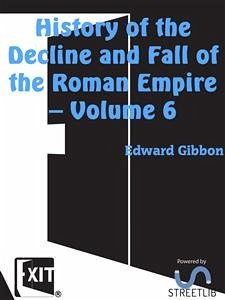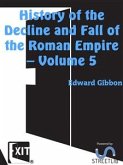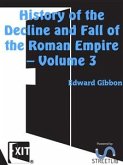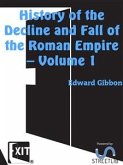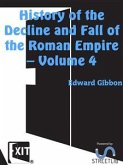Chapter LIX: The Crusades.—Part I.
Preservation Of The Greek Empire.—Numbers, Passage, And
Event, Of The Second And Third Crusades.—St. Bernard.—
Reign Of Saladin In Egypt And Syria.—His Conquest Of
Jerusalem.—Naval Crusades.—Richard The First Of England.—
Pope Innocent The Third; And The Fourth And Fifth Crusades.—
The Emperor Frederic The Second.—Louis The Ninth Of
France; And The Two Last Crusades.—Expulsion Of The Latins
Or Franks By The Mamelukes.
In a style less grave than that of history, I should perhaps compare the emperor Alexius 1 to the jackal, who is said to follow the steps, and to devour the leavings, of the lion. Whatever had been his fears and toils in the passage of the first crusade, they were amply recompensed by the subsequent benefits which he derived from the exploits of the Franks. His dexterity and vigilance secured their first conquest of Nice; and from this threatening station the Turks were compelled to evacuate the neighborhood of Constantinople. While the crusaders, with blind valor, advanced into the midland countries of Asia, the crafty Greek improved the favorable occasion when the emirs of the sea-coast were recalled to the standard of the sultan. The Turks were driven from the Isles of Rhodes and Chios: the cities of Ephesus and Smyrna, of Sardes, Philadelphia, and Laodicea, were restored to the empire, which Alexius enlarged from the Hellespont to the banks of the Mæander, and the rocky shores of Pamphylia. The churches resumed their splendor: the towns were rebuilt and fortified; and the desert country was peopled with colonies of Christians, who were gently removed from the more distant and dangerous frontier. In these paternal cares, we may forgive Alexius, if he forgot the deliverance of the holy sepulchre; but, by the Latins, he was stigmatized with the foul reproach of treason and desertion. They had sworn fidelity and obedience to his throne; but he had promised to assist their enterprise in person, or, at least, with his troops and treasures: his base retreat dissolved their obligations; and the sword, which had been the instrument of their victory, was the pledge and title of their just independence. It does not appear that the emperor attempted to revive his obsolete claims over the kingdom of Jerusalem; 2 but the borders of Cilicia and Syria were more recent in his possession, and more accessible to his arms.
Preservation Of The Greek Empire.—Numbers, Passage, And
Event, Of The Second And Third Crusades.—St. Bernard.—
Reign Of Saladin In Egypt And Syria.—His Conquest Of
Jerusalem.—Naval Crusades.—Richard The First Of England.—
Pope Innocent The Third; And The Fourth And Fifth Crusades.—
The Emperor Frederic The Second.—Louis The Ninth Of
France; And The Two Last Crusades.—Expulsion Of The Latins
Or Franks By The Mamelukes.
In a style less grave than that of history, I should perhaps compare the emperor Alexius 1 to the jackal, who is said to follow the steps, and to devour the leavings, of the lion. Whatever had been his fears and toils in the passage of the first crusade, they were amply recompensed by the subsequent benefits which he derived from the exploits of the Franks. His dexterity and vigilance secured their first conquest of Nice; and from this threatening station the Turks were compelled to evacuate the neighborhood of Constantinople. While the crusaders, with blind valor, advanced into the midland countries of Asia, the crafty Greek improved the favorable occasion when the emirs of the sea-coast were recalled to the standard of the sultan. The Turks were driven from the Isles of Rhodes and Chios: the cities of Ephesus and Smyrna, of Sardes, Philadelphia, and Laodicea, were restored to the empire, which Alexius enlarged from the Hellespont to the banks of the Mæander, and the rocky shores of Pamphylia. The churches resumed their splendor: the towns were rebuilt and fortified; and the desert country was peopled with colonies of Christians, who were gently removed from the more distant and dangerous frontier. In these paternal cares, we may forgive Alexius, if he forgot the deliverance of the holy sepulchre; but, by the Latins, he was stigmatized with the foul reproach of treason and desertion. They had sworn fidelity and obedience to his throne; but he had promised to assist their enterprise in person, or, at least, with his troops and treasures: his base retreat dissolved their obligations; and the sword, which had been the instrument of their victory, was the pledge and title of their just independence. It does not appear that the emperor attempted to revive his obsolete claims over the kingdom of Jerusalem; 2 but the borders of Cilicia and Syria were more recent in his possession, and more accessible to his arms.

